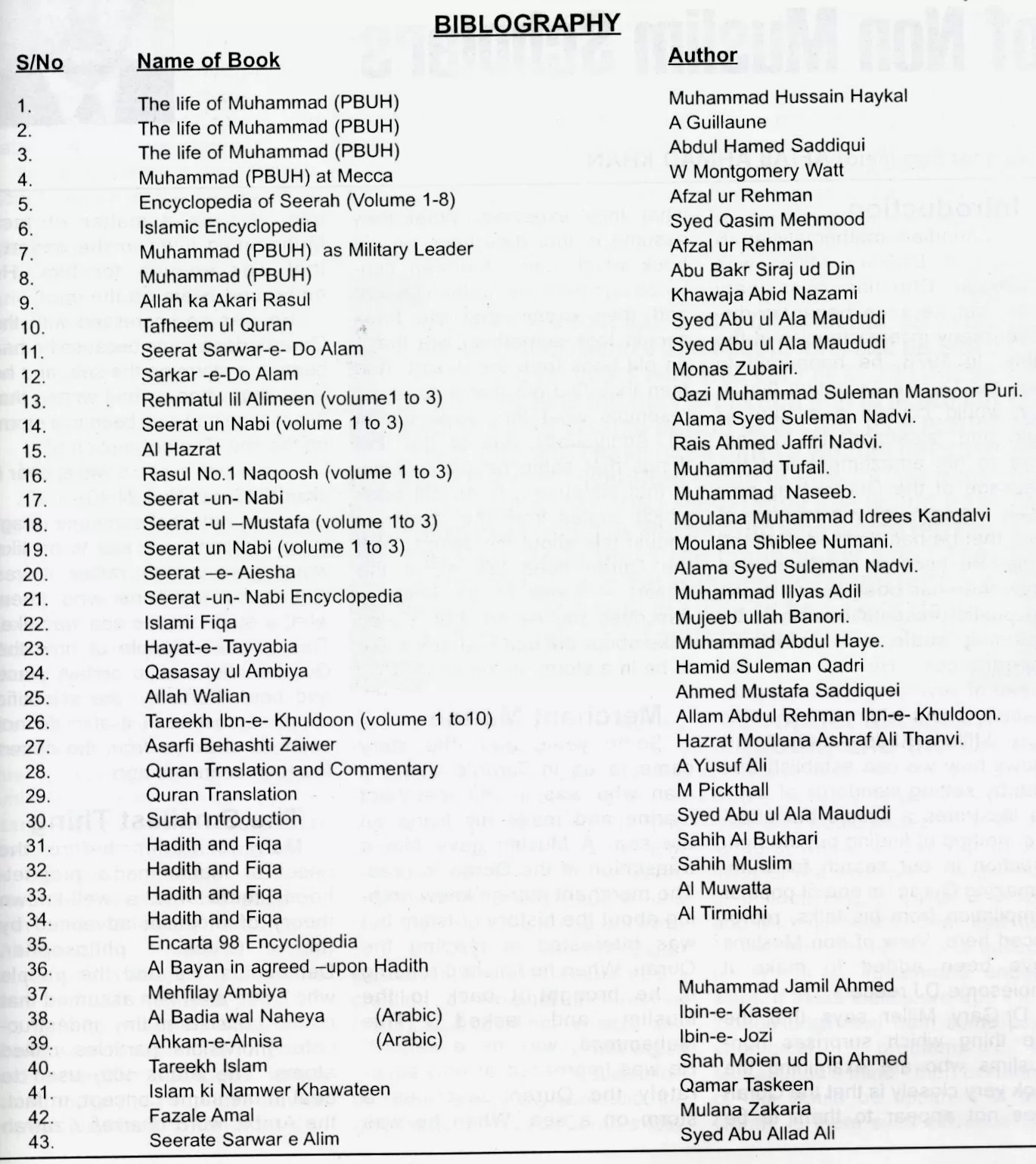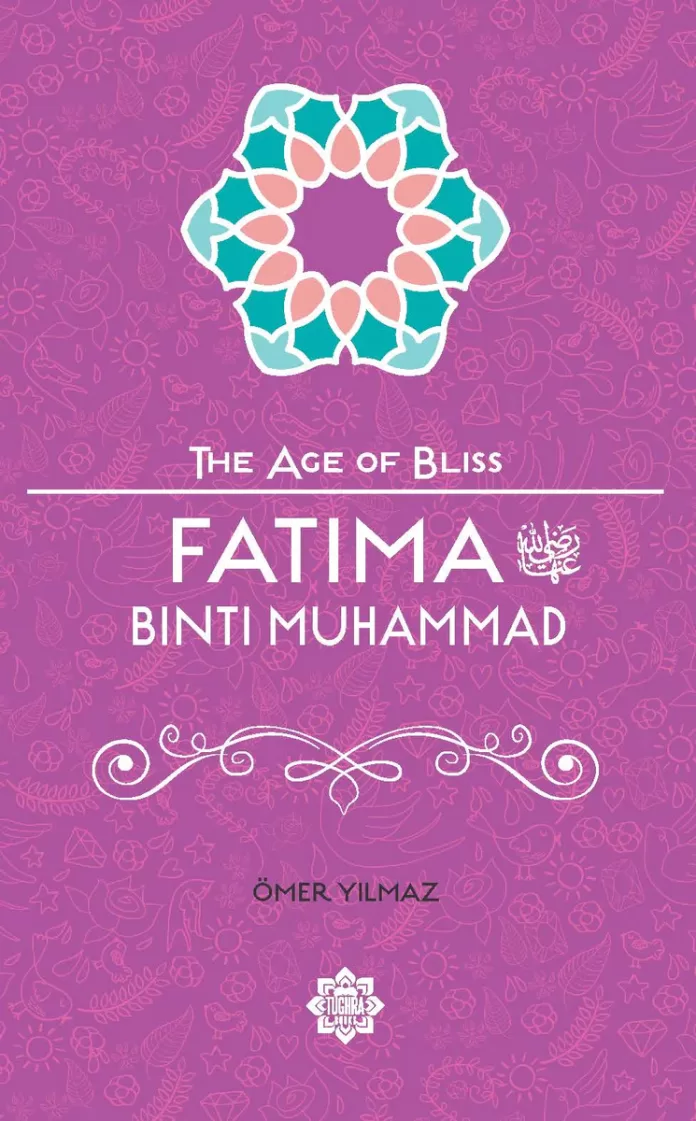The Holy Prophet once said, “The best women in all the world are four: the Virgin Mary, Asiya the wife of Pharaoh, Khadijah Mother of the Believers, and Fatimah, daughter of Muhammad (PBUH).”
Hazrat Fatimah was the fifth child of The Holy Prophet and Hazrat Khadijah. She was born 5 years before the prophet-hood of her father at a time when her noble father had begun to spend long periods in the solitude of mountains around Mecca, meditating and reflecting on the great mysteries of creation.
Sisters: She had three elder sisters
Zaynab: She was married to her cousin (son of Hazrat Khadijah’s sister Hala), Abul-As ibn Rabi’ah. They had two children namely Ali, who died before reaching the age of puberty and Umamah.
Ruqiah: She was married to Utbah son of Abu Lahab (who was her paternal uncle) and Umm Jamil. As a mark of disgrace to the Prophet Muhammad (PBUH) and his family Utbah divorced his wife. Later, she was married to Hazrat Usman. They had a son named Abdullah who according to Encyclopedia of Seerah died at the age of six years where as other writers mention the age as two years of his death. In the middle of the second year after the Hijrah, Ruqiah fell ill with fever and measles. This was shortly before the battle of Badr and Usman, her husband, stayed by her bedside and missed the campaign. She died just before her father returned from the campaign.
Umm Kulthum: She was married to Utaybah the second son of Abu Lahab and Umm Jamil and suffered the same fate as her sister. Later, after the death of her sister Rucliah she was married to Hazrat Usman. She died in the 9th year of Hijrah. There are unconfirmed reports that she gave birth to two sons who died in infancy.
Brothers: She had two real brothers and one stepbrother.
Qasim: He was born 11 years before the Prophet-hood of his father and died in his infancy.
Abdullah: According to some of the historians he was born after Fatima but died in his infancy. However this report is not supported by other writers.
Ibrahim: He was born in the 8th year AH from Maria Qbitia and died at the age of 11/2 year.
| DETAILS OF BROTHERS AND SISTERS | |||
| Name | Year of Birth | Year of Death | Age (Years) |
| QASIM | 11 Years BPH | 9 years BPH | 2 |
| ZAYNAB | 10 Years BPH | 8 AH | 31 |
| RUQIAH | 7 Years BPH | 2 AH | 22 |
| UMM KULTHUM | 6 Years BPH | 9 AH | 28 |
| FATIMA | 5 Years BPH | 11 AH | 29 |
| ABULLAH | |||
| IBRAHIM | 8AH | 10 AH | 11/2 (From Maria) |
Childhood Experience
The little Fatimah saw her sisters leave home one after the other to live with their husbands. She was too young to understand the meaning of marriage but she loved them extremely and became sad and lonely in the absence of their company. However she still had the love and care of her mother and Barakah, the maidservant of Hazrat Aminah, the Prophet’s mother, who had been with the Prophet since his birth. In addition there were Zayd ibn Harithah and Ali, the young son of Abu Talib the members of her house. Beside her mother and Barakah she found a great deal of solace and comfort in Ali, (who was about two years older than her) she found a “brother” and a friend who somehow took the place of her own brother al-Qasim who had died in his infancy. Her other brother Abdullah, known as the Good and the Pure, who was born after her, also died in his infancy. However in none of the people in her father’s household did she find the carefree joy and happiness, which she enjoyed with her sisters. She was an unusually sensitive child for her age. When she was only five she came to know that her father had become Rasul Allah, the Messenger of God. His first task was to convey the good news of Islam to the members of his family and close relatives. Her mother, who was a tower of strength and sup-port, explained to her what her father had to do. From this time on, she became more attached to her father and felt a deep and abiding love for him. Often she would be at his side walking through the narrow streets and alleys of Mecca, visiting the Ka’bah or attending secret gatherings of the early Muslims who had accepted Islam and pledged allegiance to the Prophet.
The Ordeals of her Life
One day, when she was not yet ten accompanied her father to the Masjid al-Haram. He stood in the place known as al-Hijr facing the Ka’bah and began to pray. While she was standing beside her father a group of Quraish, by no means well disposed towards the Prophet, gath-ered around him. They included Abu Jahl ibn Hisham, the Prophet’s uncle, Uqbah ibn Abi Muayt, Umayyah ibn Khalaf, and Shaybah and Utbah, sons of Rabi’ah. Menacingly, the group went closer to the Prophet and Abu Jahl, the ringleader, said, ” Which one of you can bring the entrails of a slaughtered animal and throw it on Muhammad (PBUH)?” Uqbah ibn Abi Muayt, one of the vilest of the lot, volunteered and hurried off. He returned with the obnoxious filth and threw it on the shoulders of the Prophet while he was still prostrating. Though Abdullah ibn Mas’ud, a companion of the Prophet, was present but he was powerless to do or say anything.
Imagine the feelings of a young girl who was not even ten, seeing this treatment being given to her father. What could she do? But temper in her eyes she went up to her father and removed the loath-some matter and then stood firmly and angrily before the group of Quraish thugs and lashed out against them. Not a single word did they utter? The noble Prophet raised his head on completion of the prostration and went on to complete the Salaat. He then said:
“O Lord, May you punish the Quraish!” and repeated this imprecation three times. Then he continued:” May You punish Utbah, Uqbah, Abu Jahl and Shaybah.” (These whom he named were all killed many years later at the Battle of Badr)
On another occasion, she was with the Prophet as he made tawaf around the Ka’bah when a mob consisting of Quraishites seized him and tried to strangle him with his own clothes. Hazrat Fatimah screamed and shouted for help and Abu Bakr who was close by rushed to the scene and managed to free the Prophet. While he was doing so, he pleaded: “Would you kill a man who says, ‘My Lord is God?” Far from giving up, the mob turned on Abu Bakr and began beating him until blood flowed from his head and face.
The young Fatimah witnessed such scenes of vicious opposition and harassment against her father and the early Muslims. She did not meekly stand aside but joined in the struggle in defense of her father and his noble mission. She was still a young girl and instead of the cheerful romping, the gaiety and liveliness, which children of her age are and should normally be accustomed to, she had to witness and participates in such ordeals.
The Years of Hardships
The persecution of the Prophet, his family and his followers contin-ued and even became worse after the migration of the first Muslims to Abyssinia. During the seventh year of his mission, the Prophet and his family were forced to leave their homes and seek refuge in a rugged little valley enclosed by hills on all sides, which could only be entered from Mecca by a narrow defile. To this arid valley, The Holy Prophet and the clans of Banu Hashim and al-Muttalib were forced to retire with limited supplies of food. Hazrat Fatimah was one of the youngest members of the clan -just about twelve years old and had to under-go months of hardship and suffer-ing. The wailing of hungry children and women in the valley could be heard from Mecca. The Quraish allowed no food and contact with the Muslims whose hardship was only relieved somewhat during the season of pilgrimage. The boycott lasted for three years. When it was lifted, the Holy Prophet had to face even more trials and difficulties.
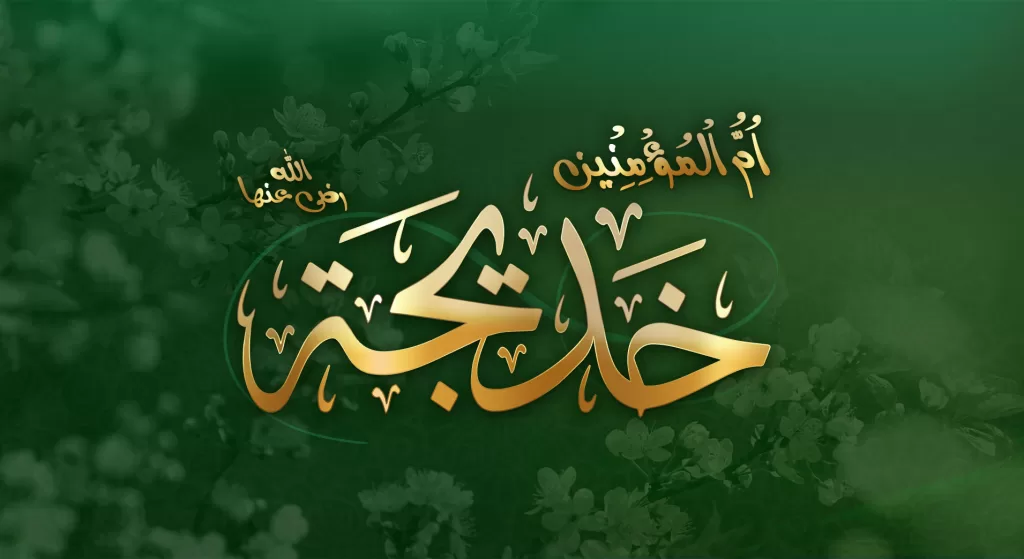
Demise of Her Mother
Shortly after the lifting of the boycott Hazrat Khadijah, the faithful and loving wife of the Prophet, died. With her death, the Prophet and his family lost one of the greatest source of comfort and strength, which had sustained them through the difficult period. The year in which Hazrat Khadijah, and later Abu Talib, died is known as the Year of Sadness. Hazrat Fatimah, now a young lady, was greatly distressed by her mother’s death. She wept acrimoniously for some time and resultantly her health started to deteriorate and it was feared that she might die of grief.
After the passing away of her mother Hazrat Fatimah realized that now she had even a greater responsibility in supporting her father in his mission. With loving tenderness, she devoted herself to looking after his needs. So concerned was she for his welfare that she came to be known as “Umm Abi-ha” —”the mother of her father”. She also provided him with solace and comfort during times of trial, difficulty and crisis and often the trials were too much for her. Once an insolent mob heaped dust and earth upon his gracious head. As he entered his home, Hazrat Fatimah wept profusely as she wiped the dust from her father’s head. “Do not cry, my daughter,” he said, “for God shall protect your father.”
The Prophet had a special love for Hazrat Fatimah. He once said, “Whoever pleased Fatimah has indeed pleased God and whoever has caused her to be angry has indeed angered God. Fatimah is a part of me. Whatever pleases her pleases me and whatever angers her angers me.”
Migration to Medinah
Hazrat Fatimah migrated to Medinah a few weeks after the Prophet did. She went with Zayd ibn Harithah who was sent by the Prophet to Mecca to bring the rest of his family. The party included Hazrat Fatimah, Umm Kulthum, Sawdah, the Prophet’s wife, Zayd’s wife Barakah and her son Usama. Abdullah the son of Abu Bakr who accompanied his mother and his sisters, Hazrat Aiesha and Asma were also traveling with the group. In Medinah, she lived with her father in the simple dwelling he had built adjoining the mosque.
Marriage with Ali
In the second year after the Hijrah, she received proposals of marriage through her father, two of which were turned down. Then Ali, the son of Abu Talib, plucked up courage and went to the Prophet to ask for her hand in marriage. In the presence of the Prophet, however, Ali became over-awed and tonguetied. He stared at the ground and could not say anything. The Prophet then asked, “Why have you come? Do you need something?” Ali still could not speak and then the Prophet suggested: “Perhaps you have come to propose marriage to Fatimah.” “Yes,” replied Ali.
At this, according to one report, the Prophet said simply, “Marhaba wa ahlan – Welcome into the family,” and Ali and the group of Ansar who were waiting outside for him took this as the Prophet’s approval. Another report indicated that the Prophet approved and went on to ask All if he had anything to give as mehr. Ali replied in negative. The Prophet reminded him that he had a shield, which could be sold. The shield was sold to Hazrat Usman for four hundred dirhams and as he was hurrying back to the Prophet to hand over the sum as mehr, Hazrat Usman stopped him and said, “I am returning your shield to you as a present from me on your marriage to Fatimah.”
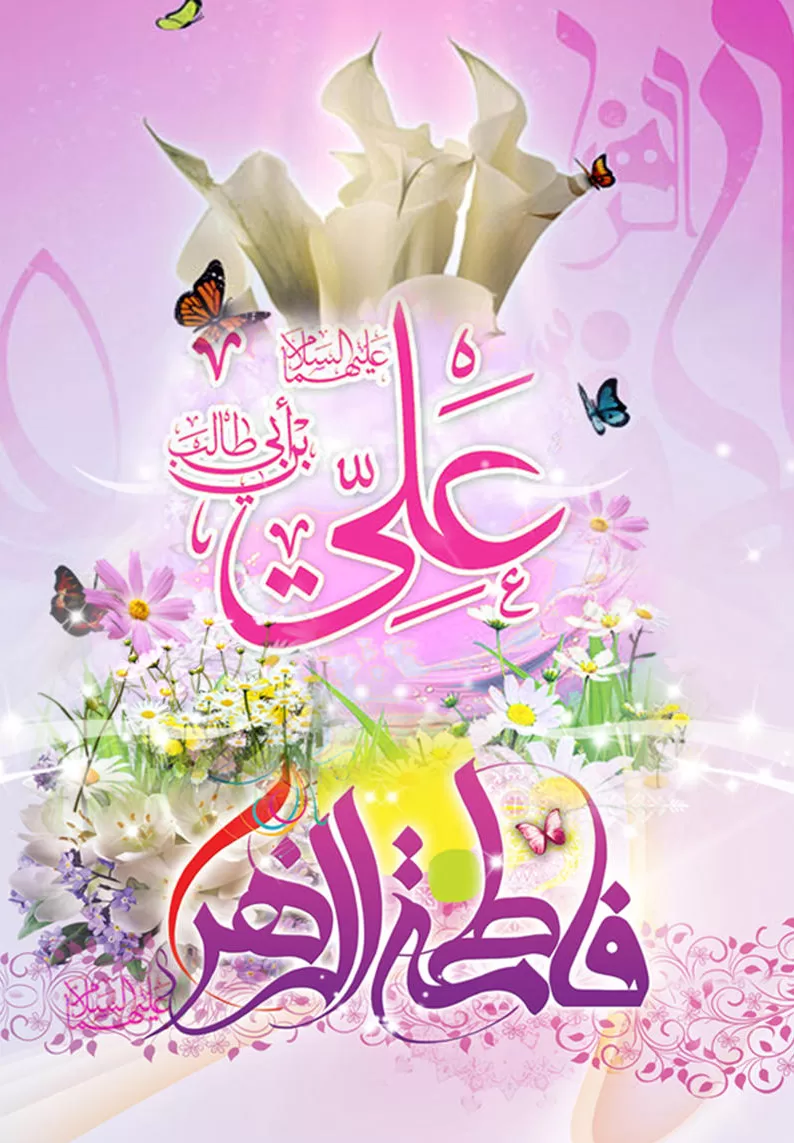
Hazrat Fatimah and Hazrat Ali were thus married most probably at the beginning of the second year after the Hijrah. She was about nineteen years old at the time and Hazrat Ali was about twenty-one. The Prophet himself performed the marriage ceremony. At the walimah, the guests were served with dates, figs and hais (a mixture of dates and butter fat). A leading member of the Ansar donated a ram and others made offerings of grain and every one rejoiced.
On her marriage, the Prophet is said to have presented the young couple with a wooden bed inter-twined with palm leaves, a velvet coverlet a leather cushion filled with palm fiber, a sheepskin, a pot, a water skin and a quern for grinding grain. As she left the home of her beloved father for the first time to begin a new life with her husband, the Prophet was clearly anxious on her account and sent Barakah with her should she be in need of any help. And no doubt Barakah was a source of comfort and solace to her. The Prophet prayed for them: “0 Lord, bless them both, bless their house and bless their offspring.”
In the morning after the wedding night, the Prophet went to Hazrat Ali’s house and knocked on the door. Barakah came out and the Prophet said to her, “0 Umm Ayman, call my brother for me.” “Your brother? That’s the one who married your daughter?” asked Barakah somewhat incredulously as if to say: Why should the Prophet call Ali his “brother”? (He referred to Ali as his brother because just as pairs of Muslims were joined in brotherhood after the Hijrah, so the Prophet and All were linked as “brothers”) The Prophet repeated what he had said in a louder voice. Hazrat Ali came and the Prophet made a du’a, invoking the blessings of God on him. Then he asked for Fatimah. She came almost cringing with a mixture of awe and shyness and the Prophet said to her: “I have married you to the dearest of my family to me.” In this way, he sought to reassure her. She was not starting life with a complete stranger but with one who had grown up in the same household, who was among the first to become a Muslim at a tender age, who was known for his courage, bravery and virtue, and whom the Prophet described as his “brother in this world and the hereafter”.
Hazrat Fatimah as a Wife
Her life with Ali was as simple and frugal as it was in her father’s house-hold. In fact, so far as material comforts were concerned, it was a life of hard-ship and deprivation. Throughout their life together, Hazrat Ali remained poor because he did not set great store by material wealth. She was the only one of her sisters who was not married to a wealthy man. In fact, it could be said that her life with Ali was even more rigorous than what it was in her father’s home. At least before marriage, there were always a number of ready helping hands in the Prophet’s house hold. But now she had to cope virtually on her own. To relieve their extreme poverty, All worked as a drawer and carrier of water and she as a grinder of corn. One day she said to her husband “I have grind until my hands are blistered.” I have drawn water until I have pains in my chest,” said Ali and went on to suggest to Fatimah: “God has given your father some captives of war, so go and ask him to give you a servant.” Reluctantly, she went to the Prophet who said: “What has brought you here, my little daughter?” I came to give you greetings of peace,” she said, for in awe of him she could not bring herself to ask what she had intended. “What did you do?” asked Hazrat Ali when she returned alone.” I was ashamed to ask him,” she said. So the two of them went together but the Prophet felt they were less in need than others.” I will not give to you,” he said, “and let the AhI as-Suffah (poor Muslims who stayed in the mosque) be tormented with hunger. I have not enough for their keep…”
The young couple returned home feeling somewhat dejected but that night, after they had gone to bed, they heard the voice of the Prophet asking permission to enter. Welcoming him, they both rose to their feet, but he told them to stay where they were and sat down beside them. “Shall I not tell you of something better than that which you asked of me?” he asked and when they said yes he said:
“Words which Jibril taught me, that you should say “Subhaan Allah- Glory be to God” ten times after every Prayer, and ten times “Al hamdu lillah – Praise be to God,” and ten times “Allahu Akbar – God is Great.” And that when you go to bed you should say them thirty-three times each.” Hazrat Ali used to say in later years, “I have never once failed to say them since the Messenger of God taught them to us.”
Daily Meals were a Luxury
There are many reports of the hard and difficult times, which Hazrat Fatimah had to face. Once the Prophet was hungry and he went to one after another of his wife’s apartments but there was no food. He then went to Fatimah’s house and she had no food either. When he eventually got some food, he sent two loaves and a piece of meat for his daughter. At another time, he went to the house of Abu Ayyub al-Ansari and from the food he was given, he saved some for her. Hazrat Fatimah also knew that the Prophet was without food for long periods and she in turn would take food to him when she could. Once she took a piece of barley bread and he said to her: “This is the first food your father has eaten for three days.” Through these acts of kindness she showed how much she loved her father; and he loved her, really loved her in return.
Once on returning from a journey he went straight to the mosque to offer two rakaats salat, as this was his routine. Then, as he often did, he went to his daughter’s house before going to his wives. Hazrat Fatimah welcomed him, kissed his face, his mouth and his eyes, and cried. “Why do you cry?” the Prophet asked. “I see you, O Rasul Allah,” she said, “Your colour is pale and sallow and your clothes have become worn and shabby.”
“O Fatimah,” the Prophet replied tenderly, “don’t cry for Allah has sent your father with a mission which He would cause to affect every house on the face of the earth whether it be in towns, villages or tents (in the desert) bringing either glory or humiliation until this mission is ful-filled just as night (inevitably) comes.” With such comments Hazrat Fatimah was often taken from the harsh realities of daily life to get a glimpse of the vast and far-reaching vistas opened up by the mission entrusted to her noble father. Hazrat Fatimah eventually started to live in a house donated by an Ansari who knew that the Prophet would rejoice in having his daughter as his neighbour. Together they shared in the joys and the triumphs, the sorrows and the hard-ships of the crowded and momentous Medinah days and years.
Children
The bereavement, which the family suffered by the death of Ruqiah, was followed by happiness when to the great joy of all the believers Hazrat Fatimah gave birth to a boy in Ramadan of the third year after the Hijrah. The Prophet spoke the words of the Adhan into the ear of the newborn babe and called him al-Hasan which means the Beautiful One. One year later, she gave birth to another son, who was called al-Hussein, which means “little Hasan” or the little beautiful one. She gave birth to another son, Muhsin but he died in his infancy. Hazrat Fatimah would often bring her two sons to see their grandfather who was exceedingly fond of them. Later he would take them to the Mosque and they would climb onto his back when he prostrated. He did the same with his little granddaughter Umamah, the daughter of Zaynab.
In the eighth year after the Hijrah, she gave birth to a fourth child, a girl whom she named after her eldest sister Zaynab who had died shortly before her birth. This Zaynab was to grow up and become famous as the “Heroine of Karbala”. Her fifth child was born in the ninth year after the Hijrah. The child was also a girl and she was named Umm Kulthum after her aunt who had died the year before after a short spell of illness.
Resemblance with The Prophet
Hazrat Fatimah had a strong resemblance to her father, the Messenger of God. Hazrat Aiesha the wife of the Prophet, said of her, “I have not seen any one of God’s creation resemble the Messenger of God more in speech, conversation and manner of sitting than Fatimah, may God be pleased with her”. When the Prophet saw her approaching, he would welcome her, stand up and kiss her, take her by the hand and sit her down in the place where he was sitting. She would do the same when the Prophet came to her. She would stand up, welcome him with joy, and kiss him.
Her Manners and Wisdom
Hazrat Fatimah’s fine manners and gentle speech were part of her lovely and endearing personality. She was especially kind to poor and indigent folk and would often give all the food she had to those in need even if she herself remained hungry. She had no craving for the ornaments of neither this world nor the luxury and comforts of life. She lived simply, although on occasion circumstances seemed to be too much and too difficult for her. She inherited from her father a persuasive elo-quence that was rooted in wisdom. When she spoke, people would often be moved to tears. She had the ability and the sincerity to stir the emotions, move people to tears and fill their hearts with praise and gratitude to God for His grace and His inestimable bounties.
Affairs of Muslim in Medinah
Although she was so often busy with pregnancies, giving birth, and rearing children, but she took as much part as she could in the affairs of the growing Muslim community of Medinah. Before her marriage, she acted as a sort of hostess to the poor and destitute AhI as-Suffah. As soon as the Battle of Uhud was over, she went with other women to the battlefield, wept over the dead martyrs, and took time to dress her father’s wounds. At the Battle of the Ditch, she played a major supportive role together with other women in preparing food during the long and difficult siege. In her camp, she led the Muslim women in prayer and on that place there stands a mosque named “Masjid Fatimah” one of the seven mosques where the Muslims stood guard and per-formed their devotions.
Last visit to Mecca
She accompanied the Holy Prophet when he made Umrah in the sixth year after the Hijrah after the Treaty of Hudaybiyyah. In the following year, she and her sister Umm Kulthum were among the mighty throng of Muslims who took part with the Prophet in the liberation of Mecca. It is said that on this occasion, both Hazrat Fatimah and Umm Kulthum visited the home of their mother Hazrat Khadijah and recalled memories of their childhood, jihad and of long struggles in the early years of the Prophet’s mission.
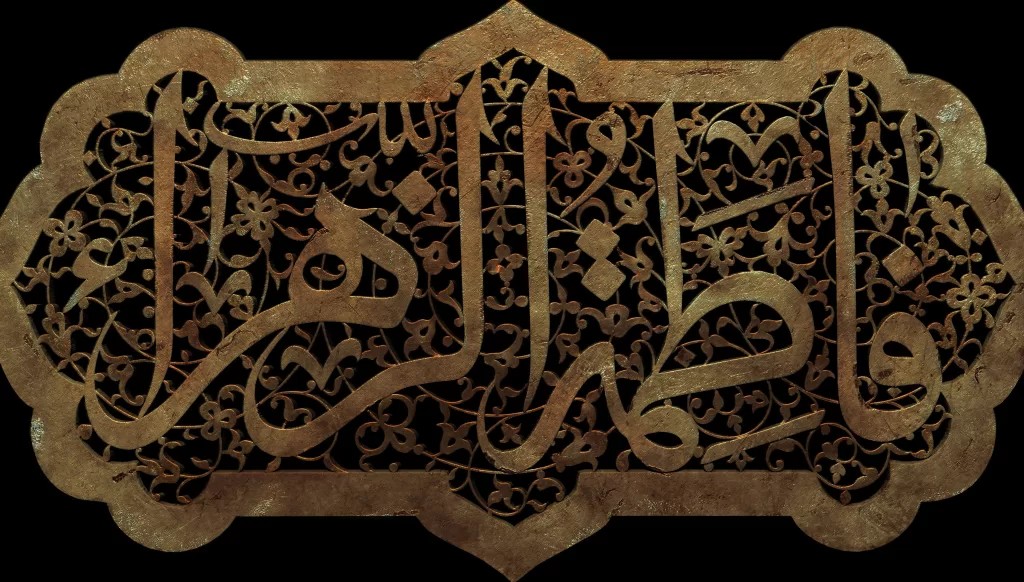
The Title of Az Zahraa
Hazrat Fatimah, may God be pleased with her, was given the title of “Az-zahraa” which means “the Resplendent One”. That was because of her beaming face, which seemed to radiate light. It is said that when she stood for Prayer, the mihrab would reflect the light of her countenance. She was also called “al-Batul” because of her asceticism. Instead of spending her time in the company of women, much of her time would be spent in Salaat, in reading the Qur’an and in other acts of ibadah.
Joining The Eternal Life
In Ramadan of the tenth year of Hijrah just before proceeding on his Farewell Pilgrimage, the Prophet confided to her, a secret not yet to be told to others, “Jibril recited the Qur’an to me and I to him once every year, but this year he has recited it with me twice. I cannot but think that my time has come”. On his return from the Farewell Pilgrimage, the Prophet did become seriously ill. His final days were spent in the apartment of his wife Aiesha. When Hazrat Fatimah came to visit him, Hazrat Aiesha would leave father and daughter together.
One day the Prophet summoned her and when she came, he kissed her and whispered some words in her ear. She wept. Then again he whispered in her ear and she smiled. Hazrat Aiesha saw this and after the demise of the Prophet asked, “you cry and you laugh at the same time, Fatimah? What did the Messenger of God say to you?” Hazrat Fatimah replied, “He first told me that he would meet his Lord after a short while and so I cried. Then he said to me: ‘Don’t cry for you will be the first of my household to join me.’ So I laughed.”
Not long afterwards the noble Prophet had passed away, she was grief-stricken and would often be seen weeping profusely. One of the companions noted that he did not see her, laugh after the death of her father. One morning, early in the month of Ramadan, just less than five month after her noble father had passed away; Hazrat Fatimah woke up looking unusually happy and full of mirth. In the afternoon of that day, it is said that she called Salma bint Umays who was looking after her. She asked for some water and had a bath. She then put on new clothes and perfumed herself. She then asked Salma to put her bed in the ourtyard of the house. With her face looking to the heavens above, she asked for her husband Ali. He was taken aback when he saw her lying in the middle of the courtyard and asked her what was wrong. She smiled and said, “I have an appointment today with the Messenger of God”. Hazrat All cried and she tried to console him. She told him to look after their sons’ al-Hasan and al-Hussein and advised that she should be buried without ceremony. She gazed upwards again, then closed her eyes and surrendered her soul to the Mighty Creator. Hazrat Fatimah the Resplendent One was just twenty-nine years old.
